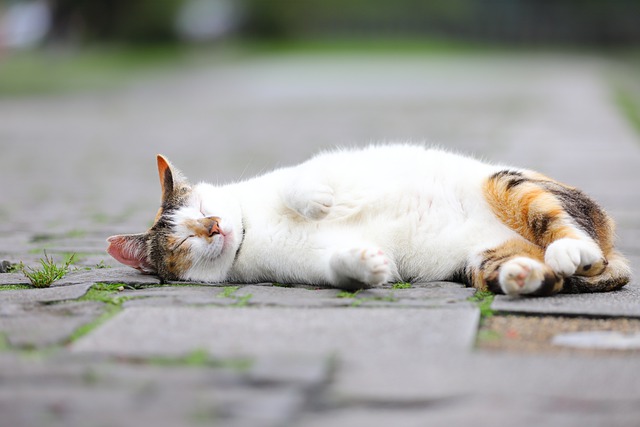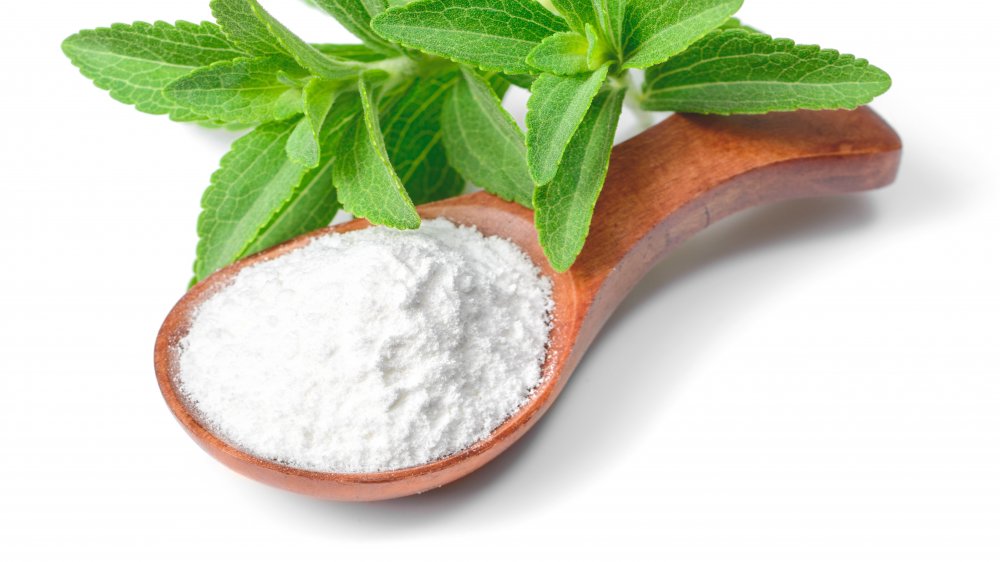Eating healthy always starts and ends with herbal and natural foods. No wonder nutritionists prefer that you battle calories the natural way, using Stevia in place of sugar. Its benefits in humans include keeping blood sugar levels in check, which is especially helpful to people with diabetes. It is also associated with many other impressive health benefits, including reduced calorie intake, blood pressure, risk of cavities, and risk of pancreatic cancer.
If Stevia possesses proven positive health benefits to humans, does it mean it is safe for cats?
First things first, we understand your concern. It is normal to try and feed your kitty the foods you eat or foods you feel she too can take. Unfortunately, some may end up harming her. Accordingly, any responsible cat parent should always err on the side of caution when it comes to sharing human foods with their cats. So, is Stevia safe for cats?
Well, let’s start by unveiling the basics…
What is Stevia?
Stevia is an excessively sweet-tasting plant originating from Paraguay and Brazil, of the family Asteraceae with the scientific name Stevia Rebaudiana. It has been used as a tea and beverage sweetener over the years since the 16th century. Because its leaves are more than 200 times sweeter than regular white sugar, it has been widely used as a healthy sugar alternative.
Although it contains little to no calories, the Food and Drug Administration (FDA) banned all marketing endeavors in 1987. This ban only lasted for eight years as it regained its popularity status as a sweet dietary ingredient in 1995.
It contains eight glycosides, including Dulcoside A, Stevioside, Steviolbioside, and Rebaudiosides A, C, D, E, & F. Of the eight, the most common glycosides are the Rebaudioside A and Stevioside.
Can Cats eat Stevia?

Cats can eat Stevia without any serious health effects as it is non-toxic to cats, dogs, and horses. In fact, as of now, there is no proven research exclusively depicting Stevia as being unsuitable for cats. Nonetheless, many feline nutritionists and veterinarians warn against giving cats (or pets in general) anything sugary.
Cats only need a few calories a day, so any extra calories from sugary foods add up quickly, potentially leading to weight gain, obesity, and other health issues. Like humans, cats also deal with conditions like diabetes. This makes sugary foods very detrimental to their health in case they consume them in excess.
Additionally, if your only aim for giving your cat Stevia is to expose her to the sweetness in Stevia, then you could be missing the point. Research has it that cat’s tongues can’t taste sweetness the same way human tongues do. This is because cats’ tongues lack sweet receptors. Compared to over 9000 taste buds in humans, our feline friends only have a few hundreds. This implies that your cat isn’t able to taste anything sweet, including Stevia. (Fun fact: they have a heightened sense of smell, which makes up for their poor taste).
So, your cat might as well reject Stevia since she lacks the sweet receptors that may attract her to the sweetener. Unless there is another unique element of Stevia that your cat likes, it might remain a futile task to feed her Stevia.
But if your cat finds reasons to consume Stevia and they do so accidentally, you shouldn’t be worried so much. Compared to sugar and many other food ingredients, Stevia has a very low glycemic index (close to zero). This means that your cat may not experience any harsh side effects after consuming it.
However, if the cat consumes a large amount of Stevia, you should take her to your local vet for a checkup. Large quantities of Stevia ingestion could be harmful to cats (and humans) as the Stevia plant and related products contain traces of harmful components, including Sodium Saccharin, Maltodextrin, Aspartame and Sodium Cyclamate. Processed sweeteners like Stevia also come with additional additives (like dextrose, lactose, cellulose powder, erythritol, etc) to enhance their flavor, texture, and prolong their shelf life.
Your cat may be exposed to any of these harmful components in harmful quantities if she consumes more than she should. So if you use Stevia products, ensure that you keep them away from your cat’s reach.
How Can Cats Get Exposed To Stevia?
While it is doubtful that your cat will eat raw Stevia Rebaudiana plant, she can easily consume it from your food.
Cats love milk, and if you use Stevia as a sweetener, there are higher chances she could find her way in your glass of milk. If you walk out and leave your milk exposed, your furry friend could have a party in your absence, accidentally consuming Stevia in the process.
Another recommended use for Stevia is in baking cakes. And you can agree that your furry buddy can’t keep away from those tasty cakes you have baked. Though they eat them in small quantities and for a different reason apart from the cake’s sweetness, they still get to eat the Stevia in it. So, if you make your cakes using Stevia, you could be making it easier for your cat to consume it when they get their claws into the cake.
There are several other ways your cat could get access to Stevia. It could be through the food you’ve made using Stevia or exposure to the Stevia products themselves. Either way, it better not be in large quantities.
Final Thoughts
Is Stevia safe for cats? Well, researchers are yet to put a full grasp on what the effects of Stevia are on cats—both positive and negative effects. However, given that Stevia is a mere sweetener, it offers zero nutritional value to cats. So, it is only safe to conclude that it is not a welcome diet for our kitties at the moment. If anything, they can’t even taste it, which means that they won’t crave it as much as we would. You better keep your cat away from Stevia until there are enough facts to support its safety for felines. If you suspect that your cat has accidentally consumed large quantities of the product, please take her to your local vet for a professional checkup.
Related Post: Is Erythritol Safe for Cats?

Hi! I am Eleanor Price. I started this website after my cat, Louie, almost died from a case of botulism (a type of food poisoning often caused by bacteria that grow on food items). Turned out that my cat’s diet was the problem. I have made it my duty to provide the best information and recommendations about everything cat lovers need to know about their felines’ health and wellbeing. My goal is to find the most informative content on anything feline-related and share it with fellow hardworking kitty lovers.

